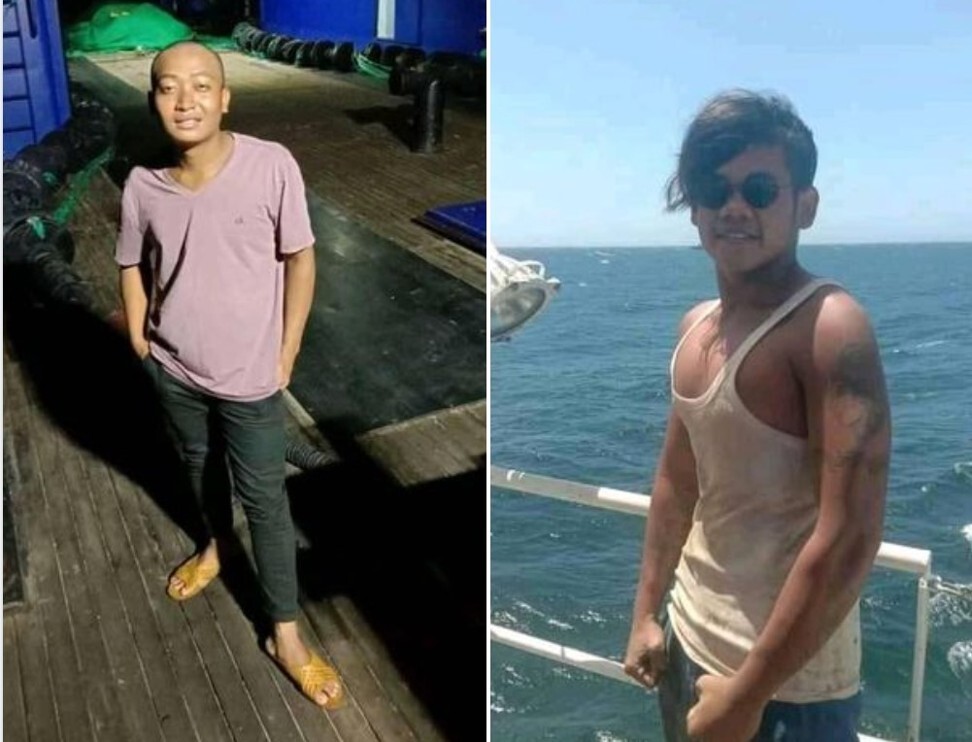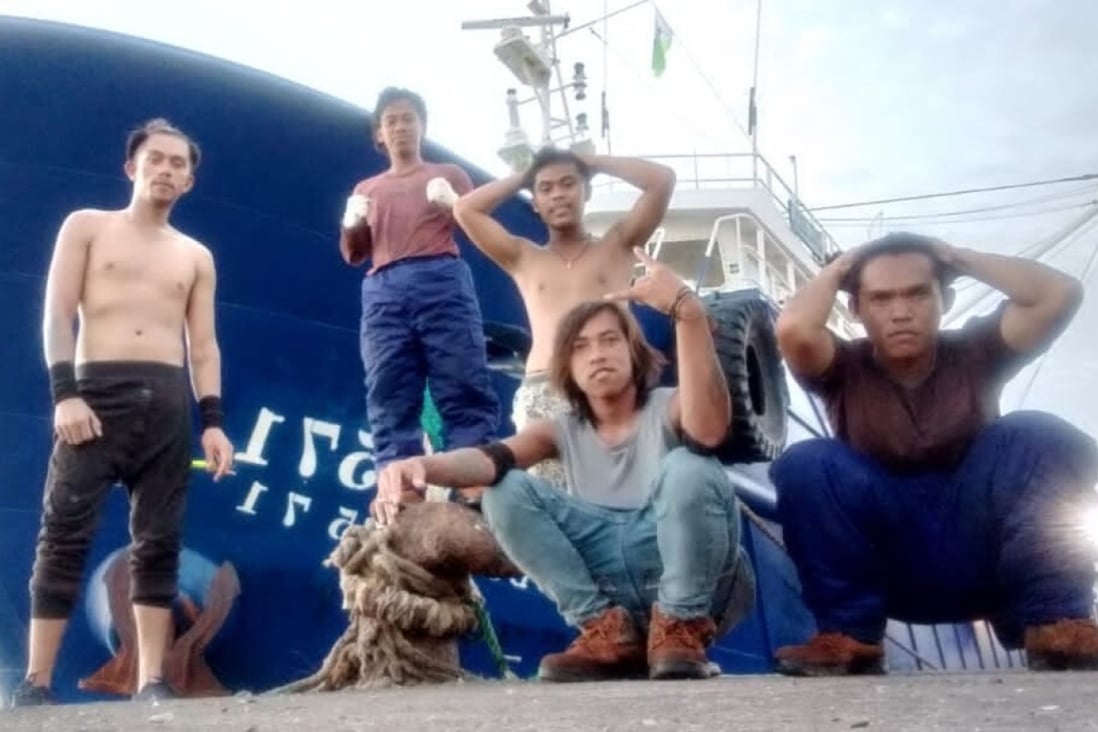Survivor recalls death and violence at sea
- Brando Brayend Tewuh made a desperate escape attempt after suffering abuse and watching workers die on vessels belonging to the Liao Dong Yu fleet
- He tells This Week in Asia he saw men being beaten until they bled and some knocked overboard in accidents, their bodies sometimes never recovered
An Indonesian worker who jumped from a Chinese fishing vessel into Somali waters to escape horrific working conditions in which crew members were beaten, starved and killed in accidents has said he hopes “no one else will experience” what he and his friends suffered.
Brando Brayend Tewuh, 29, jumped from the fishing vessel with three other Indonesians in August in a desperate attempt to escape the abuse and reach the shore of Somalia. But their bid was in vain; after drifting for hours far from land three of them were picked back up by the same ship, while the fourth man is thought to have drowned.
“I will never, ever work on a ship again,” Tewuh told This Week in Asia as he recounted his ordeal, which ended soon after his escape attempt following an intervention by industry watchdogs and the Indonesian and Somali governments.
Tewuh recalled how he had worked for months without pay, “often for 24 hours at a time with no sleep and little food” after signing a one-year contract to work aboard ships belonging to the Chinese Liao Dong Yu fleet.

The first fatal accident he saw came in July 2020, when he and his fellow crew members had just finished a 24 hour shift with no sleep. They were eating their lunch when a bell rang to call them back to the deck to haul up the trawler net.
“The net was very heavy as it had dragged up a lot of sand along with the fish. When we hauled it up, the chain snapped and the trawler net hit a Chinese crewman named Zhou Hsun Wei,” said Tewuh in a phone interview from North Sulawesi, Indonesia.
It knocked Zhou into the sea. His body was not discovered until five hours later, when it was hauled up in the net of another fishing boat.
“Why must a good person like Zhou Hsun Wei die this way,” asked Tewuh, his voice choking up.
“He was one Chinese crew member who was so good to all of us Indonesians, sharing his bottled water and food with us.”
The body of Zhou, 35, was initially kept in a freezer but was later dumped at sea, shocking Tewuh who said Zhou’s family “should have had the chance to see his body”.
A year later, a similar incident took place on another ship belonging to the Liao Dong Yu group.
This time, the chains holding a net had snapped, hitting two Indonesian crew members. One died on the boat; the other fell into the sea and his body was never recovered.

“After the incident, my friends and I were terrified that the same thing could happen to us,” said Tewuh.
Tewuh said the captain of this ship was a “bad man” who would kick and beat both Indonesian and Chinese crew members “until they bled” for the slightest infraction.
Even when Tewuh’s contract expired in December 2020 his ordeal did not end, as the ship he was working on at that time refused to repatriate him. He found he had little choice but to continue to work, in exchange for food, but no pay. However, in the month of May he refused to work.
Around mid-June, Tewuh managed to contact his parents by phone and raise the alarm. He also uploaded a video of his plight onto Facebook. The video eventually caught the attention of Destructive Fishing Watch Indonesia (DFW), but not before Tewuh and three of his Indonesian crew mates decided to take their chances by jumping overboard after dark on August 15.
“We didn’t know where we were and the shore was very far away. We tried to stay close to one another but we were hit by big waves and I got separated from two of them,” Tewuh recalled.
He and his friend Aji Proyogo held hands to stay together but they too became separated hours later when the same ship that they had jumped from tracked them down.
“The ship found us and threw a rope at me. As I reached out my hand to catch the rope, Aji’s hand slipped from me and disappeared. His body was never found.”
The other two men were also picked up by the ship.
While that escape attempt was unsuccessful, Tewuh and 11 other Indonesians were repatriated by the ship’s owner on August 28 following pressure from DFW, the Environmental Justice Foundation, the International Justice Mission and the Somali and Indonesian governments.
Now unemployed, Tewuh hopes to set up his own business to help his family with their financial difficulties but he has no money as the fishing company has kept his wages and he does not know if or when he will be paid.
Moh Abdi Suhufan, national coordinator of DFW, said at least 35 Indonesians working aboard foreign fishing vessels died between November 2019 and March 2021.
Of those 35, 82 per cent worked on vessels from mainland China.
“They died from various causes – illnesses, violence in the form of beatings and torture, murder, bad working conditions [and] inadequate food and water supply,” Abdi said. “All these factors show crew members on ships face high risks of being exploited.”
Abdi said many ship workers were recruited by illegal agents who were not registered with the labour or transport ministries.
While there are no exact figures, it is estimated at least 300,000 Indonesians work legally and illegally on ships, Abdi said.
Such workers were paid between US$350 and US$400 a month, but often the agents would take a cut from their salaries or withhold them and then “disappear”, Abdi said. “They are victims of forced labour and human trafficking and they do not have any protection while working outside the country.”
Added Abdi: “We very much regret the inability of the Indonesian government to crack down on manning agents who operate illegally to recruit workers without abiding by proper procedures.”
The owner of the Liao Dong Yu has not commented.
The article is first posted in South China Morning Post



